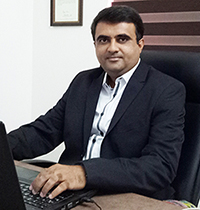Nursing, just like most other professions, is a lifelong process of learning. You can’t expect to learn everything you need to know about the job in nursing school. Adaptation skills in emergencies, for one, are something you can learn in active practice than in the four corners of the classroom.
Then again, this doesn’t necessarily mean that you don’t need to keep yourself abreast of the changes in regulations and procedures. This is why nurse practitioner continuing education is as necessary as hospital and field practice.
When you don’t something, or when you haven’t performed a procedure before, the best way to learn is through assistance and supervision.
Healthcare is an ever-evolving field of knowledge.
Healthcare and medicine are both continually evolving with the advancements in knowledge and technology. Education, like most other means of communication and information, is vital to patient positive and evidence-care outcomes.
Since techniques also change with time, understanding the urgency of knowing about these changes can make a significant difference in how a health practitioner takes care of his patients. The mortality rates of patients decrease when the health practices of their nurses improve.
Continuing education courses for nurses may not substitute for advanced nursing education courses, but it can improve the overall quality of patient outcomes and care by providing opportunities to further knowledge and skills.
Continuous education offers an opportunity to improve safe patient techniques.
For example, you’re working in healthcare as a supervisor. As such, you have to supervise patient visits, including the administration of IM injection. You then see one of your nurses chose to inject the dorsogluteal area.
That time, you knew that the site your nurse insisted on using has already been declared unsafe due to issues involving sciatic nerve damage. When you confront the nurse, she insists that she’s only following what she was taught for years. When you explain the changes in nursing techniques, she confesses that it’s her first time to hear about it.
Had no one interfered, the situation will escalate into a life-threatening event. It’s an understatement to say that several nurses fall through these cracks. How many patients should suffer and how many nurses should lose their license to highlight the importance of updated knowledge?
How are these changes in healthcare practice disseminated?
Nursing CEU or nurse practitioner continuing education is an effective and accessible means to disseminate these crucial advances and changes in the healthcare profession. Since not all countries or states require nurses to take continuing education courses before they can renew their license, it’s challenging to improve the quality of healthcare being offered.
There are, however, states and countries that impose restrictions for those who fail to go through continuous education. Some employers set minimum shift hours until their nurses comply. Some require refresher courses for returning nurses who have been inactive for a couple of years.
While these prohibitions can force the nurses to take continuous education, it’s still not enough to improve the quality of healthcare services.
Where can I find the latest nursing continuing education events?
If you’re one of those who strongly feel the need to improve your nursing strategies and practices, check out the list of healthcare conferences hosted and offered by the University Learnings System.
The great thing about them is you can view all upcoming conferences on their website, along with the details so that you can plan.
Visit their website now, or better yet, give them a call at 1-800-940-5860 and be prepared to brush up on your nursing knowledge!

